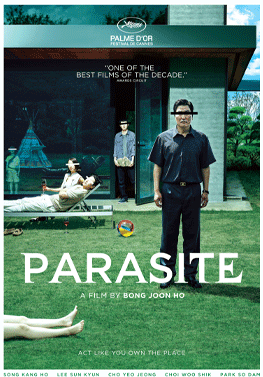
In 2019, “Parasite” mesmerized audiences worldwide with its compelling narrative, delving into the complex dynamics of social class and the indomitable human spirit. Sixteen years earlier, in 2003, “A Tale of Two Sisters” enraptured viewers with its haunting and atmospheric storytelling, exploring the intricacies of familial relationships and psychological horror. Concurrently, “Memories of Murder” gripped audiences with its intense portrayal of a real-life murder case and the relentless pursuit of justice. So here is the list of the Top 3 Korean Cinematic Gems.
These three remarkable films, each released within a span of two decades, showcase the diverse storytelling and cinematic brilliance of Korean cinema. With their distinctive narratives, and rich character development. And thought-provoking themes, “Parasite,” “A Tale of Two Sisters,” and “Memories of Murder” have left an indelible mark on the world of international cinema, solidifying their places as unforgettable gems in the realm of cinematic masterpieces.
Parasite (2019)
Parasite, a landmark in world cinema, has achieved the distinction of becoming the highest-grossing Korean film in several countries. It has also made history as the first non-English production to secure the coveted Best Picture Oscar, solidifying its reputation as one of the finest films of the 21st century. While these accolades are noteworthy, Bong Joon-ho’s true triumph lies in his ability to bring the film’s biting critique of capitalism to a global audience.
The message conveyed is far from subtle: a destitute family from the slums of Seoul infiltrates the lives of a wealthy family, even clandestinely residing in their lavish home, until the inevitable correction of the social order. Yet within this narrative lies a captivating, thrilling, often unsettling piece of entertainment that compelled even Hollywood’s oblivious elites to rise in applause. With each Joon-ho project, knowledgeable film fans eagerly anticipate his work with bated breath. Now, the world joins them in anticipation of what he will deliver next.
A Tale of Two Sisters (2003)
Kim Jee-woon’s expert direction and Lee Byung-woo’s Hitchcockian score enhance the atmospheric horror fable of “A Tale of Two Sisters,” which takes inspiration from a folk story. The film was released during a significant year for Korean cinema, with Bong Joon-ho’s “Memories of Murder” and Park Chan-wook’s “Oldboy” marking its timeline.
Echoing the eerie ambiance of “The Shining,” the gothic mansion, with its looming corridors and intricate William Morris wallpaper, sets the stage for this haunting tale. Meticulous direction and an evocative score further heighten the chilling atmosphere. The end result is a psychological horror masterpiece crafted by one of Korea’s finest filmmakers.
Memories of Murder (2003)
Until the release of “Parasite,” this thriller held the position as the consensus high watermark among the contenders in Bong Joon-ho’s filmography. Even to this day, there are numerous fans, including Quentin Tarantino, who argue that it remains his finest moment. “Memories of Murder” revolves around a series of real-life murders that sent shockwaves through a small town in the ’80s. Bong skillfully twists the police procedural genre, offering a potent indictment of a society ill-equipped to handle such violence and death.
True to his signature style, Bong infuses the proceedings with healthy doses of black humor as a pair of unprepared rural cops join forces with a big city investigator (portrayed by Kim Sang-Kyung) in their pursuit of the killer. However, as the body count rises and the trail of clues becomes frustratingly elusive, a cloud of melancholy descends upon the film, growing increasingly dark and intense. The filmmaker’s mastery is evident in the expert delivery of each twist in the narrative, even though it would take a few more years for the wider world to fully recognize this brilliance.
Watch Top 3 Korean Cinematic Gems on Fmovies
Also Read:
